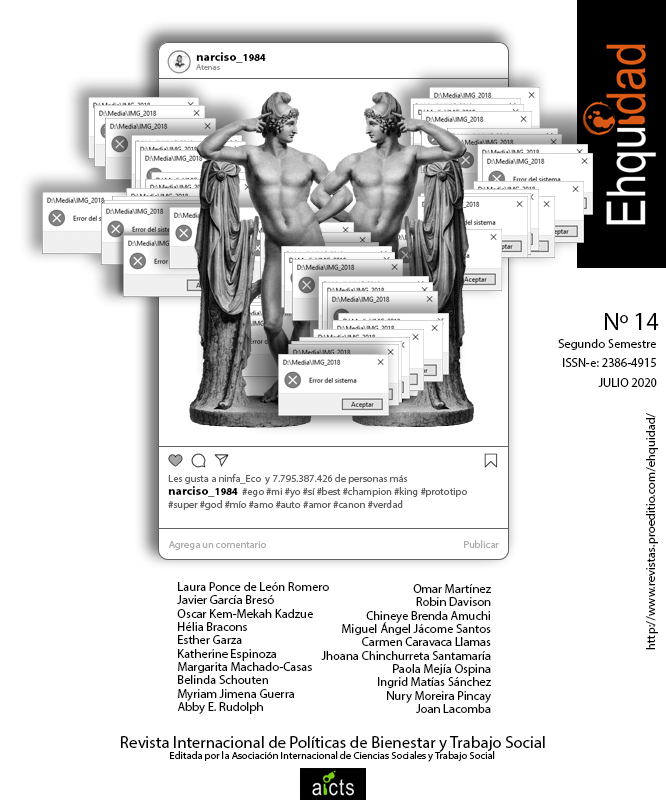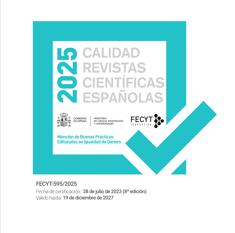Online Teaching During the Covid-19 crisis in Cameoon’s University Education: Achievements and Challenges
DOI:
https://doi.org/10.15257/ehquidad.2020.0012Keywords:
COVID-19, Confinement, Online Learning, Education 2.0, Education reforms.Abstract
The global health crisis of COVID-19 (Coronavirus Disease 2019) has meant a great change in the modus vivendi and modus operandi of all the inhabitants of planet earth. In all countries, people have been forced to confine themselves and maintain physical distance as long as they go out into public spaces. At the educational level, face-to-face classes have been suspended, leading to the implementation of methodological innovations using the resources provided by ICTs. However, it must be recognized that the socio-economic and socio-educational realities are not the same in all countries. Therefore, each country has had to design, as far as possible, online teaching models according to its socio-educational and socio-economic realities. In this paper, we explore the educational model and the strategies implemented in the Cameroonian university environment, taking as a reference the case of the Ecole Normale Supérieure, University of Yaounde I. Our purpose is to review the innovations carried out and also to propose a reflection on the achievements and challenges for a quality training of the Cameroonian students living in an increasingly digitalized and competitive world.
Downloads
References
Alejaldre Biel, L. (2014). Inclusión de las TIC en el contexto de la enseñanza de E/LE en Gambia. FIAPE. V Congreso internacional: ¿Qué español enseñar y cómo? Variedades del español y su enseñanza, 1-13.
Eyeang, E. (2020). Cómo afrontar la educación online cuando solo dos de cada diez estudiantes tiene ordenador y solo uno tiene ordenador e internet en casa. Web Mujeres por África https://mujeresporafrica.es/2716-2/ [consultado el día 22/05/2020]
Hootsuite y We are social (2020). Digital 2020 – Cameroon. https://www.digitalbusiness.africa/reseaux-sociaux-les-37-millions-de-camerounais-presents-sur-facebook-instagramm-twitter-et-linkedin/ [consultado el día 08/05/2020]
Instituto Cervantes, (2012). Las competencias clave del profesorado de lenguas segundas y extranjeras. Alcalá de Henares, Dirección Académica.
INTEF (2017). Marco Común de Competencia Digital Docente. Instituto Nacional de Tecnología Educativas y de Formación del Profesorado. Madrid, Ministerio de Educación, Cultura y Deporte. Gobierno de España, Enero 2017. http://www.slideshare.net/educacionlab/marco-comn-de-competencia-digital-docente-2017 [consultado el día 08/05/2020]
Internet World Stats (2020). Internet World Stats. Usage and population statistics. https://www.internetworldstats.com/stats1.htm [consultado el día 08/05/2020]
Kem-mekah Kadzue, O. (2018). TIC y ensenanza de espanol en camerún: creencias del profesorado e implicaciones didácticas. Intercambio/Échange 2, 84-96.
Ministerio de Educación, Cultura y Deporte (2002). Marco Común Europeo de Referencia para las Lenguas: Aprendizaje, Enseñanza, Evaluación. Subdirección General de Cooperación Internacional. Madrid, Secretaría. General Técnica del MECD y Grupo ANAYA, S.A.
Official Journal of the European Union (2006). Recommendation of the European Union and of the Council of 18 December 2006 on key competences for lifelong learning (2006/962/EC). En http://eur-lex.europa.eu/LexUriServ/LexUriServ.do?uri=OJ:L:2006:394:0010:0018:en:PDF [consultado el día 08/05/2020]
Université de Yaounde I (2020). Cours en ligne université de Yaoundé I. http://www.coursuy1.uninet.cm. [Consultado el día 08/05/2020].












